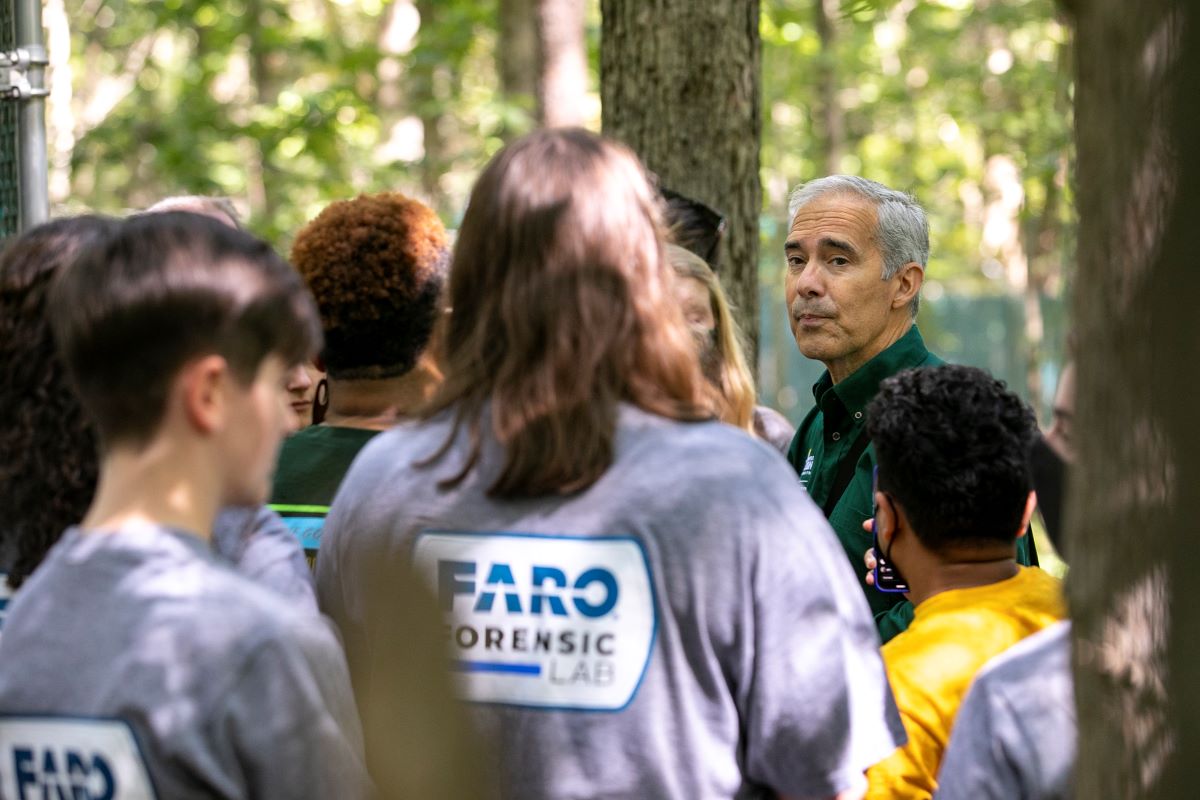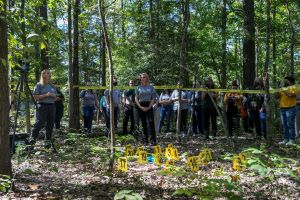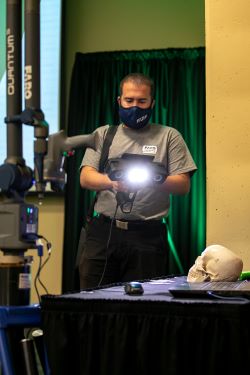
The George Mason University Forensic Science Program has further established its place as one of the nation’s premier programs in its field with a partnership with FARO Technologies, Inc. that will result in the world’s first FARO-certified forensic science laboratory.
An industry leader in the kind of high-tech 3D measurement and imaging that leading law enforcement agencies and others use for crime scene investigation, FARO will lend Mason $300,000 of equipment for use by students training in state-of-the-art forensic science technology. Students will also have the opportunity to work alongside law enforcement partners such the George Mason University Police, Fairfax County Police, Fairfax City Police and others, including the U.S. Army.

Much of the research will be done at Mason’s new five-acre Forensic Science Research and Training Laboratory in Manassas that is one of just eight in the world capable of transformative outdoor research in forensic science using human remains. Mason is the first university to do so and offer FARO equipment certification.
“Whether a student is learning how to process an outdoor scene at the university’s ‘body farm,’ measuring a murder scene inside the Forensic Science Crime Scene House or testifying in court as an expert witness, they will walk in the shoes of real forensic scientists and learn how to apply their science and skills to get answers about how crimes are committed and how to solve them with the accuracy and precision of 21st-century technology,” said Mary Ellen O’Toole, the former FBI profiler who heads the Forensic Science Program within Mason’s College of Science. “This exciting FARO-Mason Forensic Science partnership is the first of its kind in the world, and the opportunities we can now give to our students and develop with our external partners can only be imagined.”
As a direct result of the partnership, Mason’s Forensic Science Program will soon become the first in the nation to offer a 3D course in crime scene documentation.
Fernando Miralles-Wilhelm, the dean of Mason’s College of Science, lauded the partnership for taking forensic science research, education and training to the highest standards of achievement.
“This first-of-its-kind merger of FARO forensic technology and the expertise in Mason’s Forensic Science program positions it as one of the most complete and diverse programs of its kind in the country, offering unique, hands-on training and certification for students and law enforcement officials in 3D crime scene processing, forensic anthropology, and even forensic artistry,” Miralles-Wilhelm said.
Forensic science has changed considerably over the years, with technology such as 3D scanning and reality capture now playing a critical role in the preserving of crime scenes so that investigators may continue to return to the virtual crime scene to evaluate evidence. By storing that information digitally, forensic investigators can review even the most minute details and share that information before returning to the crime as many times as needed.

Mason forensic science students will immediately benefit from that real-world taste and hands-on experience with the latest technology.
“I feel well prepared for whatever I’m going to see,” said forensic science graduate student Samantha Hadley.
Alina Burroughs, FARO’s senior business development manager for public safety, said her company was thrilled to team with the Mason Forensic Science Program because of a shared commitment to innovation.
“FARO and GMU have a unique partnership based on the common goal of advancing the field of forensic science through innovative technology,” Burroughs said. “Our powerful, non-invasive laser scanning solutions allow investigators to document scenes, supplying more comprehensive data faster, resulting in more accurate analysis, identification of victims, and resolution of cases. We are proud to work together with George Mason to build the next generation of forensic investigators through this shared vision.”
The Forensic Science Research and Training Laboratory expects to receive its first donations of human remains next month.
More About Forensic Science
- November 13, 2024
- November 7, 2024
- March 21, 2024
- January 11, 2024
- December 5, 2023
